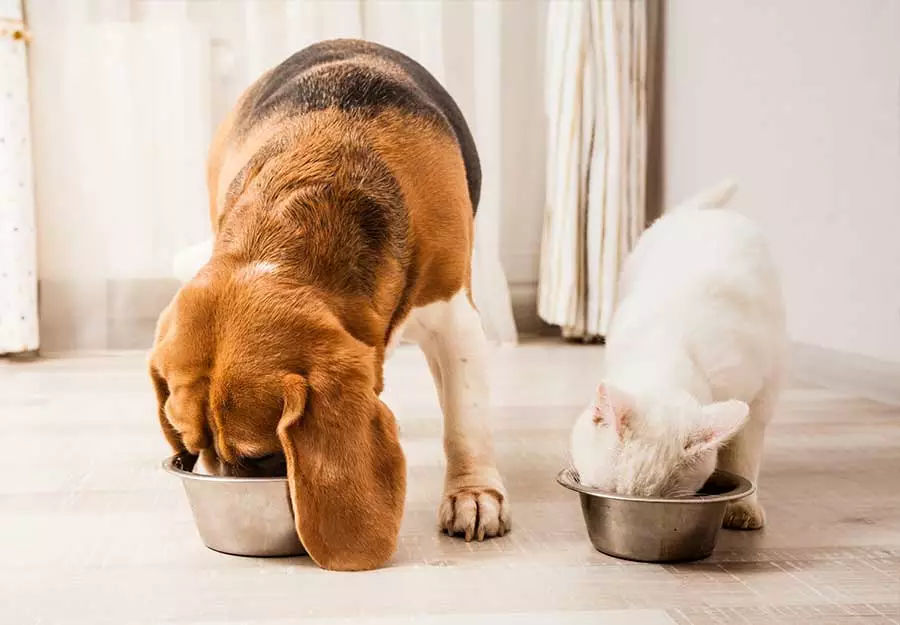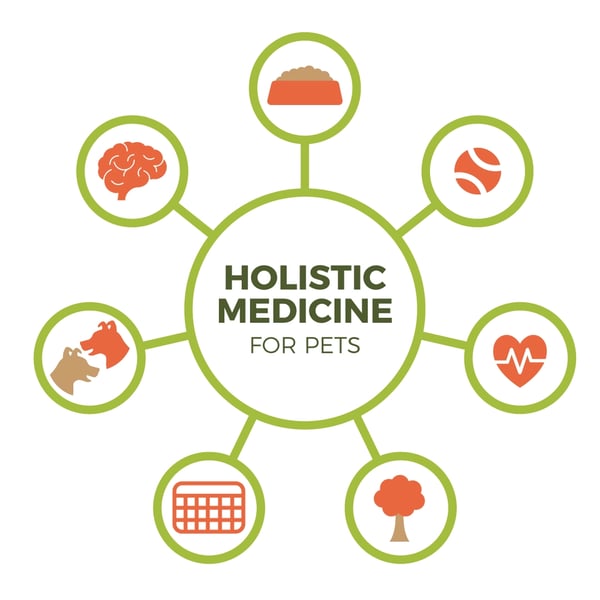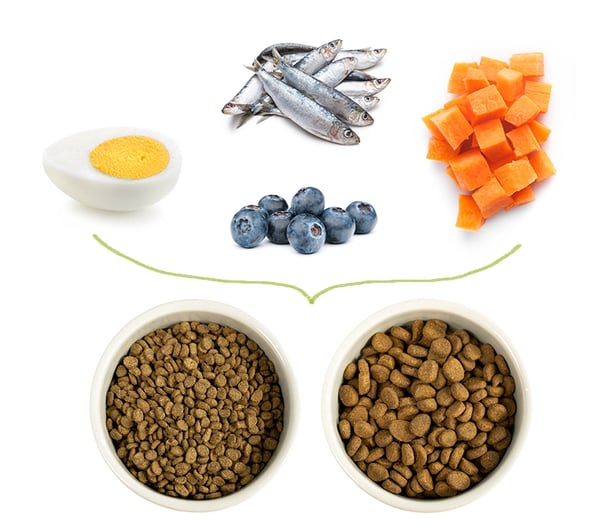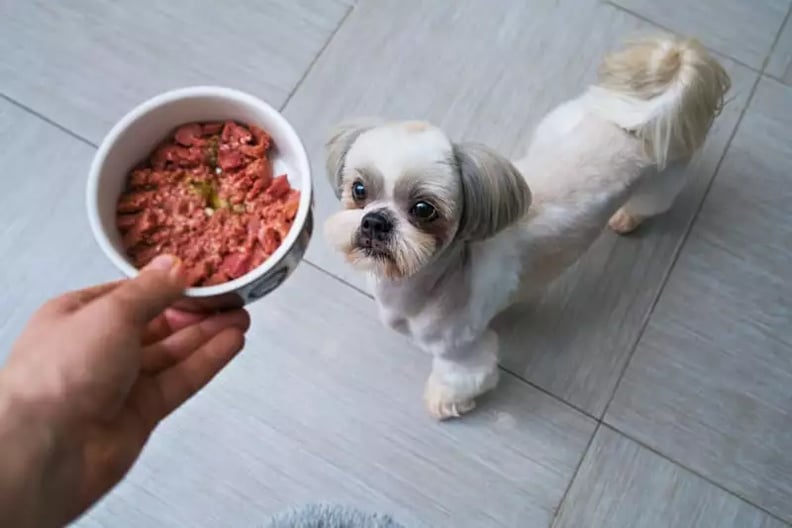
Are you tired of dosing your pets with medications to mask one symptom or another? Do you wonder if the foods that come with a vet recommendation really do what they claim they do?
For many of us who have struggled with our pet’s health, we always placed our trust in traditional veterinarians, their products, and their education, but what if there was a different approach to keeping our pet’s healthy?
There is such a divide between traditional and integrative medicine, and it’s hard to know who to believe. I connected with Dr. Judy Morgan to provide some insight into the world of holistic veterinary practices and to help you make the best choices for your pets.
Animal nutrition is multifaceted, and it plays a larger role in your pet’s overall health than you may realize. Whether you are managing a current condition or acting preventatively to provide your pet with the best quality of life, holistic nutrition can offer an alternative approach to caring for your furry loved one.
Holistic Nutrition with Judy Morgan
Dr. Judy Morgan is a nationally renowned author and veterinarian certified in acupuncture, food therapy, and chiropractic care for dogs, cats, and horses.
After using traditional western medicine to treat her patients for many years, Dr. Morgan discovered a better way to help them live longer, healthier lives using holistic veterinary medicine.
Above all, she advocates that proper nutrition is the foundation of your pet's health. Check out her blog for some eye-opening information about the pet food industry.
1. What is holistic medicine for pets?
Holistic medicine means we look at and treat the entire patient, including environmental influences, behavioural or psychological influences, diet, exercise, socialization, normal routine, as well as health issues.

We don't diagnose "kidney disease" and treat with drugs. Instead, we look at the entire picture and make recommendations across all influences in the life of the pet.
2. How is pet nutrition viewed from a holistic point of view?
Food is the foundation of life.
Food can be used as medicine, instead of using drugs or chemicals. Very few clinicians are trained in food therapy, unfortunately. Many veterinarians use prescription foods, which in my opinion are made with low-quality ingredients.
I much prefer to use whole foods that are fresh if possible. Processed food is just as bad for our pets as it is for us.
3. What are the biggest challenges facing holistic and integrative veterinarians?
Depending on which modalities are being used, there can be a lot of pushback from the traditional veterinary world.
Homeopathy has been under attack for years, but the veterinary homeopaths in the US have fought back and kept their ability to practice intact. In the UK and Canada, there has been more controversy and many veterinarians have been told to cease and desist as far as homeopathy is concerned.
Fecal transplants can be met with resistance, even though they are being used in human medicine. Acupuncture is fairly readily accepted. Chiropractic care is less favourably viewed by traditionalists.
If holistic veterinarians have a failure in treatment, they are treated more harshly than traditional veterinarians who have failed with treatment.
Traditional veterinarians are quick to denounce holistic treatments and I've been called a "quack" more times than I care to count.
4. How do we educate pet owners when their vet's teach an opposing nutritional philosophy?
If we educate clients and inform them how processed food is made, they often understand the differences.
If clients eat healthy themselves, the conversation is much easier. If they eat fast food and processed junk, it's harder for them to see the connection.
If more human doctors focused on nutrition for their patients, it sure would make our job easier for the pets! The best we can do is show the ingredients used.
5. Should pet owners start incorporating raw or fresh nutrition into their pet's diet?
I encourage pet owners to at least add some whole foods to the diet as toppers on whatever they are already feeding. An egg, a can of sardines, some fresh fruits (no grapes or raisins) or veggies as treats or toppers work very nicely. A little cooked meat can make a big difference.

6. Are prescription diets necessary?
Believe it or not, those diets are sold as "prescriptions," which means the FDA should regulate them as drugs. But, most likely for political reasons, the FDA has allowed them to sell them as prescriptions without any of the "drug" testing that would be required to bring a drug to market.
I have much better success in treating my patients with whole foods rather than these "dead" processed foods made with poor quality ingredients and added chemical nutrients.
7. Can nutritional supplements be used to boost commercial diets?
Supplements may or may not be necessary. Not all raw diets are complete, particularly if they are DIY. Commercial diets are commonly deficient in good nutrition, so adding a nice organic whole food supplement is not a bad idea.
However, I still prefer to add real food containing fresh vitamins that have not been destroyed by processing.
8. Why do so many vets subscribe to the traditional philosophies of pet nutrition?
That's what they are taught in veterinary school. Sales of prescription diets make up a good percentage of clinic income. Veterinarians are not taught how to formulate complete homemade diets and are afraid to comment on diets that owners prepare at home, other than to denounce them.
Veterinary conferences are highly subsidized by large pet food companies. Veterinarians succumb to the same advertising that is shown to pet food consumers, and they believe it all.
9. Is all kibble bad?
I despise kibble. It has 3 to 6% moisture. Our pets cannot possibly make up for the lack of moisture, no matter how much they drink.
The extrusion process uses high heat and denatures many (most of the vitamins). Fats used for flavouring commonly undergo oxidation, becoming rancid. Preservatives, dyes, sugars, and chemicals are added very commonly, none of which are beneficial for our pets.
Some kibble companies are showing movement away from 4D meat and toward the use of better quality ingredients at least. (But the words natural and best holistic dog food have no meaning, so any pet food company can use them willy-nilly.)
If there is any "meal" in the product, it has been rendered, meaning the origin of the meal ingredients is suspect.
Also, kibble is only about 25 to 30% meat, max. This is totally inappropriate for cats, which are obligate carnivores. Dogs are omnivores but certainly thrive on meat-based diets, even though they can survive on plant-based diets.
10. What advice would you give to pet owners who want to make their pets' food at home?
Homemade diets should include rotation - meats, vegetable matter, eggs, fish, fats, oils, and must include calcium and trace minerals. It can be very difficult to completely balance a diet without any supplements, although it can be done.
I see way too many well-meaning pet owners feeding home-prepared diets that are extremely deficient. Hamburger or chicken, with rice and peas, does not come close to being complete! There are some good books out there (and some very bad ones with very imbalanced diets).
Takeaways

So what can we take away from this sage advice?
Well, I think it’s safe to say that there is a lot more to pet nutrition than manufacturers want us to know, and that it is up to us as pet owners to seek advice from vets and experts who are willing to look beyond the scope of basic pet nutrition. Dr. Morgan provided us with some key insights into our pet’s health that we can consider when choosing their diet:
-
- Quality of ingredients matters, so don’t be fooled by clever labels like ‘natural’ and ‘holistic’. Ask your pet food manufacturer where they source and how they process their ingredients.
- Start incorporating fresh ingredients, like veggies or eggs, into your pet's diet. No matter what you feed, introducing fresh ingredients into their diet will provide many essential nutrients that may be lacking in a cooked or heavily processed food.
- Not all homemade diets are complete, so do your research! Complete and balanced means that their food contains the right quantities of all of their essential vitamins, minerals and amino acids.
In a perfect world, raw and fresh foods are the best diet choice for our pets, but we understand that there are many factors that dictate your pet food decisions. Check out our Raw Dog Food Guide to get a better understanding how raw can make a difference in your dog's life.
For those that are willing to try, you will see some amazing benefits to your pet’s overall health.
Even die-hard kibble feeders can reap the benefits by feeding fresh ingredients as treats, meal toppers and side dishes. A little freshness in your pet’s diet will give you a sneak peek at the benefits of holistic nutrition.
.png?width=200&height=66&name=logo%20(1).png)


.jpg)
